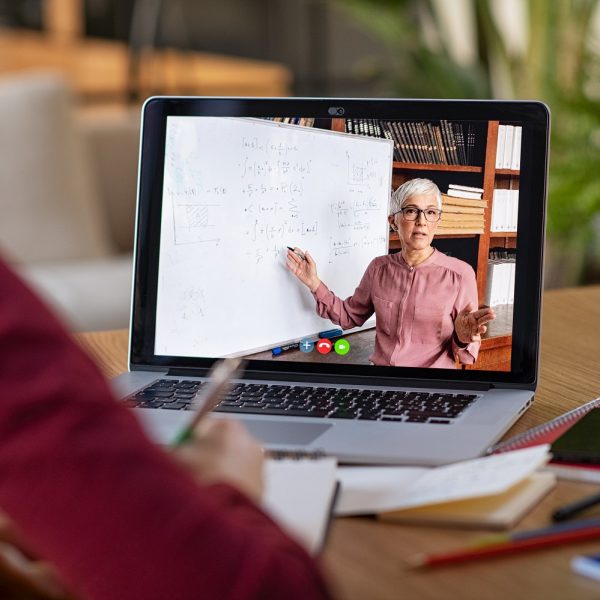ClaroSpeak Plus

When it comes to PC-based writing and reading tools, there’s no shortage of choices, and we’ve covered plenty of those apps in past e-bulletins. But what about when you need a more mobile solution, perhaps something that works with Android tablets or iPads? Today, we’re going to look at a premium text-to-speech app that has a range of useful features for reading and writing on the go.
ClaroSpeak Plus is a premium reading and writing app with Optical Character Recognition (OCR) capabilities, which means that this app can turn a piece of paper or page from a textbook into digitized text which can then be read aloud. This is especially helpful for students with unique learning challenges, but there’s no one who WOULDN’T benefit from having this kind of technology in the classroom, on the job, or even at home.
Read&Write Literacy Tool

We’ve said many times before that the Apple iPad is one of our favorite platforms due to its many built-in accessibility features. But what if those built-in features aren’t quite enough? What if you need a bit more of your iPad but you still want to use the apps that you are most familiar with?
Enter Read&Write, a literacy app that functions as a keyboard replacement/enhancer. The app is designed to support reading, writing, comprehension, and vocabulary development, and it does so within the apps that you’re already used to using, from documents and presentations to email and browsers. The app is helpful to a wide range of individuals including persons with learning disabilities such as dyslexia or dysgraphia, persons with mobility challenges, and ESL students.
Proloquo2Go

We don’t spend a lot of time talking about Augmentative and Alternative Communication (AAC) apps, and that’s for a couple reasons. First, AAC apps and hardware are typically recommended by speech-language pathologists. The other reason is that these devices are also highly specialized, and quite expensive, so it’s not always easy to get our hands on the latest and greatest AAC hardware.
Today however, we’re going to look at an AAC app that costs a fraction of the price of a typical piece of AAC hardware, while still providing users with what they need to effectively communicate with the outside world. Proloquo2Go is a symbol-based AAC app for iPad that is designed for persons with speech difficulties, autism, cerebral palsy, and other fine-motor based disabilities, as well as a wide variety of communication-based challenges.
Montessori Numbers

We’ve looked at a couple math calculator and equation breakdown apps in the past, but today we are going to look at a math app that instead focuses on building mathematical foundations. Montessori Numbers is a visual math app designed for children aged 3-7, and it offers a wide range of guided math activities that are designed to conform to common core standards.
Speechify Text to Speech

Text-to-speech apps allow users to quickly absorb articles, documents, emails, and virtually anything else found online. Of course, students and professionals aren’t the only ones who benefit from text-to-speech applications. Persons with disabilities including those with dyslexia, dysgraphia, visual impairments, and more, can all benefit from this alternative approach to reading.
GeoGebra Calculator Suite

Imagine you’re a highly visual learner, and your math instructor’s teaching style isn’t working for you. You’ve gone for extra help, but you just can’t wrap your brain around these new concepts. Many of us have been there, but the good news is there are now plenty of apps available that are designed to provide alternative means of instruction.
Free Digital Literacy Tools Available Online

In 2022, if you want to stay informed and connected to the outside world, being digitally literate is essential. This is especially true for those who are still participating in the work force, as most job opportunities, work environments, and means of companywide communication is online. And while Neil Squire offers free digital literacy training for persons with disabilities, there are also other free options available right now that shouldn’t be ignored. These resources are well-crafted, searchable, and have been used by millions of users.
Be More Efficient with Outlook

If you’re using the internet in 2022, chances are you’ve already heard of Microsoft’s email platform (and successor to Hotmail), Outlook. The platform is quick, efficient, and easy to use, and generally does everything an email service should. Plus, the Outlook is especially helpful for anyone who operates within the Microsoft/Microsoft 365 environment, because of how well it integrates with the other apps under that umbrella such as Teams. Today, we’re going to look at a few tips, tricks, and interesting features that not every Outlook user may be aware of. Hopefully even veteran users will learn something new today!
Which Cloud Service is Right for You?

Do you find yourself often running out of hard drive space? Have you noticed that your computer has begun to slow down significantly after owning it for a couple of years? Taking advantage of free, cloud-based storage is a great way to maximize your overall digital storage potential, and to prevent you from having to spend money on a bigger hard drive, USB sticks, external hard drives, etc. That being said, you may have noticed that there are quite a few options to choose from! In an effort to better understand these options, we’re going to compare and contrast the top four cloud-based services available today.
Do More with Microsoft Teams

Within a relatively short period of time Microsoft Teams has seen widespread adoption across schools, business, and groups across the globe, and for good reason. The platform is free, easy-to-use, and offers plenty of accessibility features for individuals across a wide spectrum of backgrounds, learning styles, and abilities. And while the app does a great job of pointing users to its many useful features, there is so much to explore within Teams that we thought we’d create a list of some tips and features for Microsoft Teams that you may not know about.



